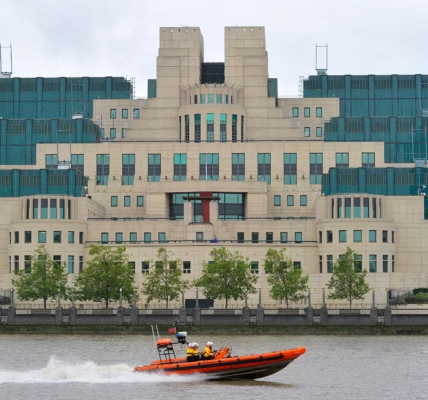
By Sean Rayment
Britain must “actively prepare” for a “direct” attack on the country in a “wartime scenario”, a government review of threats to the nation’s security has concluded.
In a stark assessment, the national security review stated that “for the first time in many years” the likelihood of a state attack on British soil was growing.
It added that Britain’s adversaries were already “laying the foundations for future conflict” by positioning themselves to “cause major disruption to our energy and/or supply chains” to “deter us from standing up to their aggression”. In particular, the report highlighted threats to Britain’s underwater cables and pipes, which the country relies upon for 99 per cent of its digital communications and approximately three-quarters of its gas supply. It said these were now a “target” for hostile states and their proxies.
It warned that the UK was vulnerable to threats from new chemical and biological weapons, as well as hostile activities including “assassination, intimidation, espionage, sabotage, cyberattacks, and other forms of democratic interference”.
The government said it planned to bolster “home defence”, including a focus on the “protection of critical national infrastructure and countering sabotage during a crisis”. It also intends to run annual “national exercises” to test the UK’s “whole-of-society preparedness”. A network of national biosecurity centres will be established, with investment worth more than £1 billion, to bolster defences against biological incidents, accidents, and attacks.
The report said the UK must “harden and sharpen” its approach to national security across “all areas of policy” and called for a “major cultural shift in government to help us navigate the new era in which we find ourselves”. “We will need to be more unapologetic and systematic in pursuit of our national interests,” it stated. “For the first time in many years, we have to actively prepare for the possibility of the UK homeland coming under direct threat, potentially in a wartime scenario.”
The report included details of a China audit, carried out by officials, which attempted to assess the threat posed by the country’s growing power and technical expertise.
In the Commons, the Foreign Secretary, David Lammy, said the government was not publishing the audit because the details would damage the UK’s national interests.
But he said it had “underlined the extent of Beijing’s support for the Kremlin” and, as a result, the UK was investing £600 million in its intelligence services and “updating our state threats legislation”.
He added: “The audit described a full spectrum of threats, from espionage and cyberattacks to the repression of Hong Kongers and attacks on the rules-based order.
“It made clear that our protections must extend more widely than they currently do — from the security of this House to our critical national infrastructure.”
However, he insisted that in other areas the audit had shown the need for the UK to cooperate with China, including on issues like trade and climate change.
The audit stated that China was undergoing a “rapid economic, military and technological modernisation on a scale that is unprecedented in world history”.
Actions taken by Beijing, on issues from international security to the global economy and climate, had the potential to have a “significant effect on the lives of British people”. The strategy warned that “instances of China’s espionage, interference in our democracy, and the undermining of our economic security have increased in recent years”.
It said: “Each pillar of the strategic framework contains measures that are designed to bolster our overall security with respect to China and other state actors that have the ability to undermine our security … The China audit therefore recommends an increase in China capabilities across the national security system to strengthen our ability to engage, as well as our resilience and readiness on the basis of deeper knowledge and training.”
Pat McFadden, a Cabinet Office minister, told MPs the strategy would help to protect the UK at home and abroad, while more would be invested in artificial intelligence and defence.
He told MPs: “When the Prime Minister spoke to the House in February, he promised to produce a national security strategy that would match the scale of the task ahead, and the strategy we publish today does that — with a plan that is both clear-eyed and hard-edged about the challenges we face.”


































































































































































































































































































